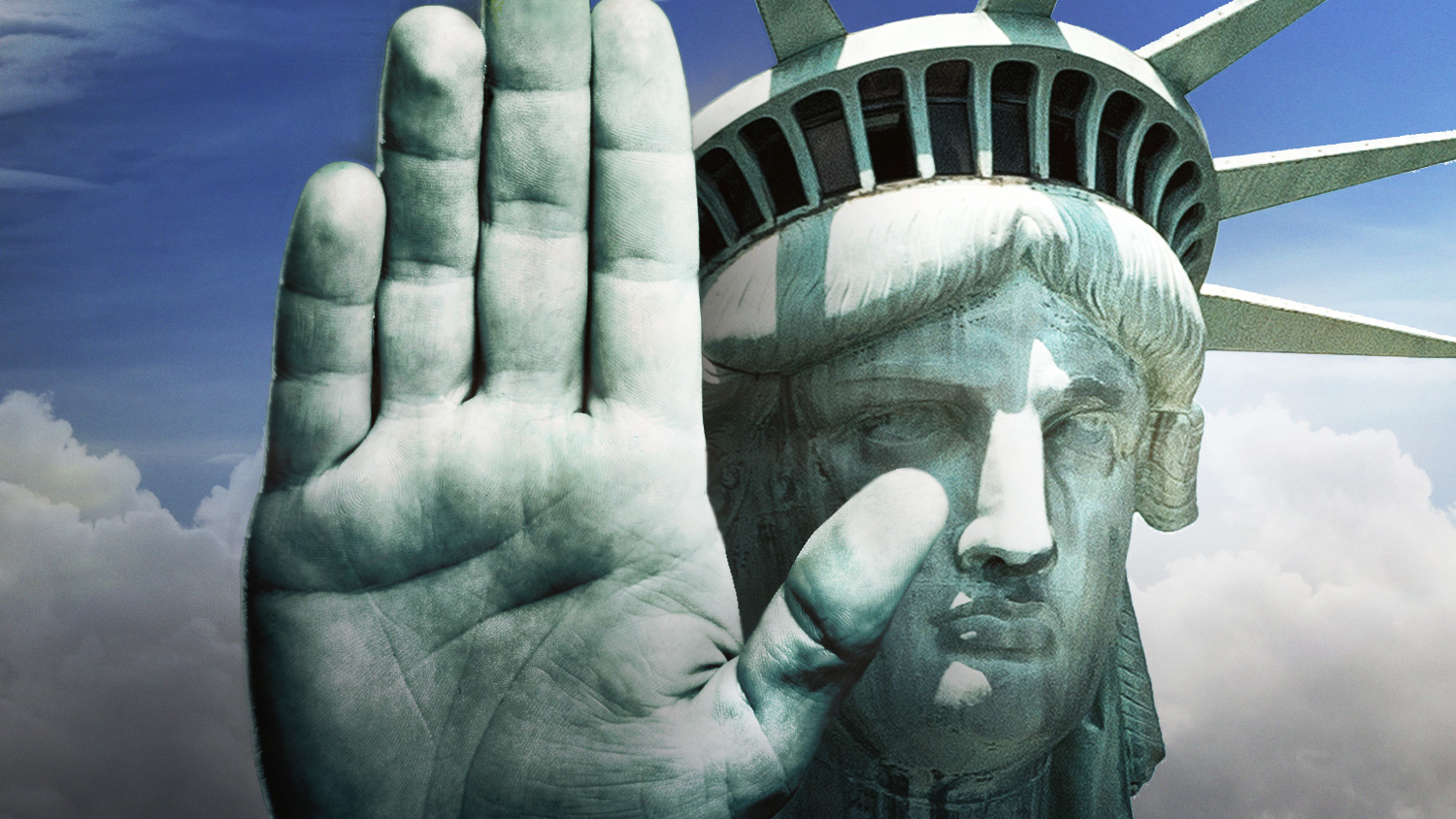Due process, the Constitutional protection against government imposing its unconstrained will on individuals, is guaranteed in the Fifth Amendment. But in Second Amendment issues, it is more the exceptions that remind us of the rule.
We’ve discussed the lack of due process in psychiatric record reporting and firearm confiscation before. (See Gun Violence Restraining Orders, Is It Mental Illness or Is It Guns? and Violence and Mental Illness: Treatment Is Good!) Here is the latest example:
An incident occurred in April 2015 in Yates County, New York, that highlights critical issues about the state’s so-called SAFE Act and how state findings determine National Instant Check System (NICS) prohibitions. Part of the Act requires physicians and emergency departments to notify their county Mental Health Departments when treating someone who may represent some danger at admission, and about any “commitment” to a mental hospital unit. In this context, “commitment” means “involuntary admission”. As with similar requirements nationwide, the reporting can be done without the subjects’ knowledge.
Donna McKay had a long history of anxiety problems, never with any hazard to herself or others. She voluntarily sought help at Soldiers and Sailors Memorial Hospital in Penn Yann on April 7, 2015, experiencing increased anxiety. It was found that certain medication with situational stress were likely responsible for the exacerbation. The episode resolved within 12 hours. She did not even require a formal inpatient admission.
The emergency physician wrongly signed an Office of Mental Health report McKay had been committed to a mental institution (which requires an assessment of risk). The report then went, per protocol, from the county mental health department to New York State OMH. From there, removal of her firearms was approved by Yates County Court for execution by the New York State Police. And on April 15, 2015, three troopers came to her home and confronted her with an order to confiscate her guns.
This was a complete shock to Mr. and Mrs. McKay. But by then “the FBI, the ATF, the NYS Police, the NYS Department of Criminal Justice Services, the NYS Office of Mental Health, the [Yates] County Clerk, the County Court, the County Sheriff, and the Penn Yann Police Department” all knew about the matter. This was standard procedure. Also standard procedure was that the original, mistaken OMH report was forwarded from one agency to another with NO investigation of the facts. A basic inquiry would have revealed the physician’s error, and that she had not been “committed” to treat her mental illness episode.
Parenthetically, McKay had used and owned guns safely since she was a child, is a capable hunter, and obtained her NYS Pistol Permit in 2008, all without any problems. Undergirding the law’s gaping lack of requiring any notification or due process for such confiscation, New York’s “may issue” approval process for handgun licensure equals “may rescind” by the same authorities.
New York State forwarding the OMH finding to the FBI for NICS inclusion made her permanently ineligible to purchase firearms. There is no requirement that the subject of this report be notified, either, and she wasn’t. Likewise, there is no provision for appeal except through the Federal courts at one’s own expense, once the prohibition is encountered.
To her credit, McKay handled the visit calmly, then got busy. She had no right even to know why the confiscation occurred, but suspected that her hospital visit might have been relevant. She had no clue how to request the documents in the chain of events, or even what they all were (and actually had no legal right to any beyond her hospital record). She consulted a local attorney who wasn’t knowledgeable enough about the complex interplay between applicable New York and Federal laws but then, fortunately, they found Paloma Capanna.
Capanna is a Rochester area attorney who has made it her mission to represent unfortunates caught in these Second Amendment nightmares. She works with the Gun Owners of America–New York (and, formerly, the Shooters Committee on Political Education) against the egregious impositions and restrictions of the SAFE Act, as well as the state’s anachronistic may-issue handgun permitting.
Civil rights proceedings, unlike criminal matters, are not eligible for assignment to public defenders even though hiring attorneys is beyond the means of families like the McKays. When her attorney consulted Capanna she decided to accept the case pro bono, to her credit and the McKays’ good fortune.
Once her suit was heard, the Yates County Court readily ordered on June 7, 2016 that McKay’s “pistol permit . . . shall be reinstated and returned to her . . . and any firearms, rifles or shotguns and other items taken . . . shall be returned.”
But this still leaves the large matter of NYS falsely reporting to the FBI that McKay should be prohibited from purchase (and, consequently, possession) of firearms. This case was filed December 21 and is pending in United States District Court for the Western District of New York in Rochester, as Donna McKay v. State of New York. (The filing is well-worth reading for its thorough summary of all the wrongs perpetrated by all the systems involved in these matters, as well as for detail about Mrs. McKay’s case itself.)
These cases narrate a saga of state and federal government overreach and unconstitutional infringement on rights guaranteed in multiple amendments to the U.S. Constitution. They are confronting fundamental attacks on the rights of Americans.
Government is not supposed to be able to infringe on the right to keep and bear arms, certainly not based on false allegations. Citizens are supposed to have the right to confront their accusers (in this case, government agencies, with reference to the hospital and physician).
It’s absolutely necessary to be represented by knowledgeable, effective legal counsel when fighting the deprivation of the liberties and privileges of citizenship. This is as critical in civil actions as in criminal matters, because the consequences of the loss of civil freedoms can be just as devastating as the financial penalties, incarceration and restrictions that can result from criminal convictions.
The risk of losing civil rights by seeking help increases the stigma attached to suffering mental illness. As a society, we don’t need more of this. As of November, there were over 4.6 million total listings in the NICS of “adjudicated mental health” status (which almost always refers to an involuntary psychiatric commitment, not determination by a court).
In New York alone, over 382,000 reports about such individuals have been made beginning in 2007 through 2015, accelerating since the SAFE Act in 2013. This is good in that it represents a lot more complete reporting of potentially prohibiting circumstances than many states accomplish. But that good can be voided by the damage done to safe, responsible gun owners who have been treated, only to find out the hard way they’ve been labelled and have no ready recourse.
In contesting these New York State affronts to citizens and Constitution, GOA-NY, SCOPE-NY and attorneys like Capanna are on the front lines fighting self-aggrandizing government and bureaucratic metastasis. Please consider adding SCOPE-NY to your roster of pro-Second Amendment support, along with DRGO and the Second Amendment Foundation.
Let’s be hopeful about this fight, with the prospect of greater constitutional respect returning to government this New Year!

— DRGO Editor Robert B. Young, MD is a psychiatrist practicing in Pittsford, NY, an associate clinical professor at the University of Rochester School of Medicine, and a Distinguished Life Fellow of the American Psychiatric Association.
All DRGO articles by Robert B. Young, MD.

